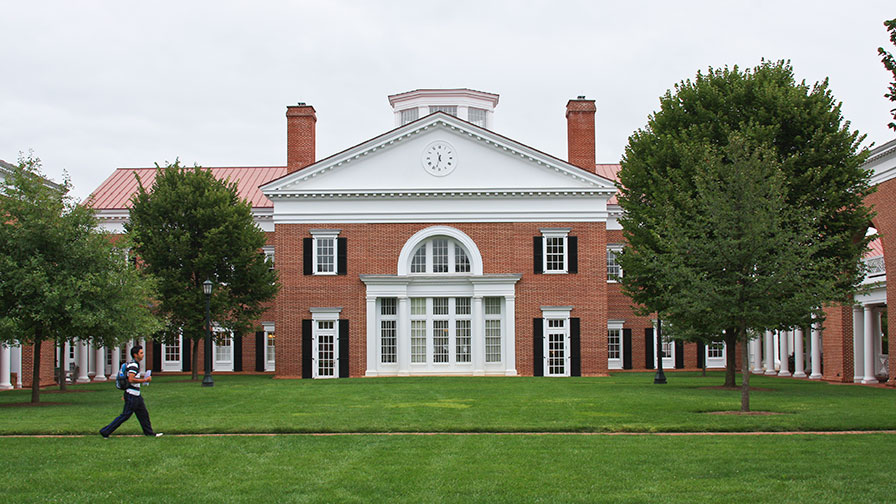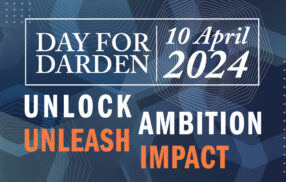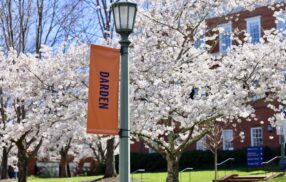
Lendstreet: Recovering From Debt, Rebuilding a Life
By Amy Halliday
“It was a personal jolt,” says Jerry Nemorin (MBA ’08) of the earthquake that devastated his native Haiti in January 2010. In May of that year, he traveled to Haiti and saw not just the crumbled buildings but also the determination to recover. “I had been living the comfortable Wall Street life,” he recalls. “In Haiti I saw these resilient people trying to go about their days, and I asked myself, What am I afraid of?”
Within a matter of weeks, Nemorin left his job in the banking industry and entered the Darden School’s i.Lab Incubator to begin developing LendStreet, a marketplace lending platform designed to serve the most vulnerable borrowers. The company, which launched an early version of its website in 2013, has helped U.S. consumers in four states restructure and refinance their debt.
Earlier this year, LendStreet received an initial round of venture capital financing—validation both of a business model that aims to generate economic and social benefits and of Nemorin’s decision to redirect his efforts toward making a difference for those who need it most.
The idea for a new kind of lending platform came to him in 2008, during the dark days of the Great Recession, as he worked on a project to restructure corporate debt. If we could come up with creative solutions for struggling companies, he wondered, why not for financially distressed individuals? At the time, he was contributing as a lender on Prosper, the first peer-to-peer lending platform, established in 2006, and he saw both a need and an opportunity.
Whereas Prosper and Lending Club offer loans to consumers with high credit scores, Nemorin wanted to help those whom the financial services industry generally disregards—people who’ve had good credit scores but have fallen deep into debt as a result of some kind of financial shock.
“These consumers are being bombarded by calls from collection agencies, and they have only two options,” Nemorin explains. “They can use a debt settlement company, which helps them negotiate a lower debt but is stressful because it extends the delinquency period, or they can declare bankruptcy, which is like having a permanent scarlet letter. Neither option is about recovering from financial hardship, rebuilding your credit score, or building a better future. We want to reach good people who are looking to get out of debt responsibly.”
LendStreet’s model helps borrowers do that, and it lets creditors recover more than they would otherwise. The company partners with debt settlement companies that negotiate with creditors. LendStreet then funds the settlement for borrowers, creating a new reduced loan with a lower interest rate that provides a return for investors that is commensurate with the risk. LendStreet rewards borrowers for paying back more than their minimum and is developing online educational materials that give individuals insight into their finances and help them understand the workings of credit.
For Nemorin, the long but rewarding process of building a venture began in the i.Lab in the summer of 2010. Initially, he planned to partner with banks to gain access to their delinquent customers. But in the wake of the financial crisis, most banks were too busy trying to put their own houses in order to work with a startup. So he decided to pursue a different customer acquisition channel—organizations that help individuals settle with banks.
In 2013, he moved to Silicon Valley. “Money is not going to come pouring in just because you’re here,” he says. “But there is a different kind of energy around startups and around disruptive ventures with a mission to change the world. And it’s a place that attracts a lot of talent.”
He also participated in an accelerator for financial services startups run by Village Capital, an organization founded by U.Va. alumnus Ross Baird (Col ’07) that supports and invests in mission-driven entrepreneurs. “We had our heads down, executing toward milestones,” Nemorin recalls. “Village Capital forced us to step back and gain a better understanding of the product, the market, and where LendStreet could fit in.”
Early in 2015 LendStreet closed its first round of institutional financing from CrunchFund and three social impact funds: Accion Venture Lab, Kapor Capital and Serious Change. The company has recently hired a CTO and two engineers. Growth presents new challenges, but in Nemorin’s mind, the entrepreneur’s basic job does not change.
“You’ve got to be scrappy,” he says. “You need to make use of every resource available. That includes people—and not just investors. Human capital and partnerships are just as critical to a startup as money. Along the way people have joined us for short periods, lending their particular expertise, which has been invaluable.”
Potential customers are another crucial resource. “Even for a technology-based product like LendStreet, you can get out there and test it with potential users without having built the technology,” Nemorin says. “Before you build the house, live in the tent. I didn’t realize that at the start, but now it’s embedded in our DNA. I am a big advocate of doing things manually first and then translating the learning and processes into the appropriate technology.”
Nemorin is now focusing on expanding the team and the company’s footprint across the United States. His ultimate goal is to return to Haiti to contribute to the country’s economic development. He will bring to that effort all he has learned about building a business and designing offerings that fill a profound social need. As he notes, “Entrepreneurs solve problems they know, problems they understand.”
The University of Virginia Darden School of Business prepares responsible global leaders through unparalleled transformational learning experiences. Darden’s graduate degree programs (MBA, MSBA and Ph.D.) and Executive Education & Lifelong Learning programs offered by the Darden School Foundation set the stage for a lifetime of career advancement and impact. Darden’s top-ranked faculty, renowned for teaching excellence, inspires and shapes modern business leadership worldwide through research, thought leadership and business publishing. Darden has Grounds in Charlottesville, Virginia, and the Washington, D.C., area and a global community that includes 18,000 alumni in 90 countries. Darden was established in 1955 at the University of Virginia, a top public university founded by Thomas Jefferson in 1819 in Charlottesville, Virginia.
Press Contact
Molly Mitchell
Associate Director of Content Marketing and Social Media
Darden School of Business
University of Virginia
MitchellM@darden.virginia.edu





